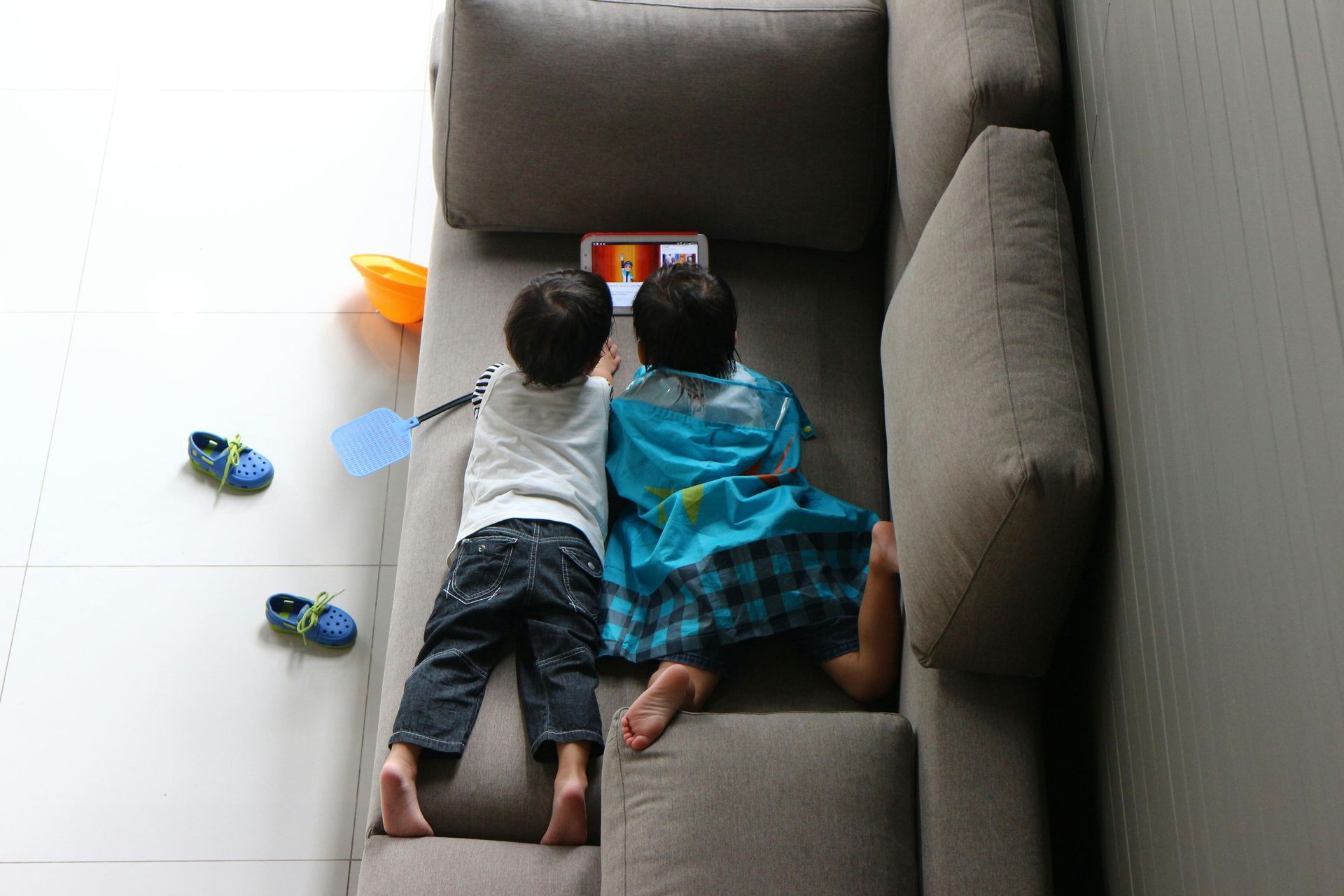How Do You Manage Kids' Screen Time?

That is one of the most frequently asked questions I get from parents.
I wish the solution were as easy as, “Ask the kids to set a timer” or “Talk to the kids about why too much screen time is bad for them,” because those were the things that I did with my son, and they worked well for us.
Is it because my son is compliant? I don’t think so, because since he was three, I have always encouraged him to speak up when something does not make sense or when he disagrees with something, and he does that often with me.
The thing is, what has worked for our family will not necessarily work for others because every child and family dynamic is unique. Without knowing the whole picture, it is not possible to determine what method is suitable for a specific family.
For example, is trust already in place? If the parents trust that their kids are honest, and the kids also trust that they will be heard and not be reprimanded or punished when they express their thoughts or when they don’t do what is expected from them, then there is likely a certain level of trust in place.
What? No reprimanding your kids when they don’t do what is expected of them? You must be kidding!! I hear ya. I will explain why in the latter half of this blog.
This morning, my thirteen-year-old son came to me to ask me about screen time limits for creative designing in Minecraft.
This has been our agreement for screen time in the last year: four hours a week of passive screen use and unlimited active screen use. Researching anything educational counts as active screen use. There is also a limit of one hour per day for chess. Although playing chess online is active screen use and should be unlimited, we decided that playing chess in person is preferable. Thus, the one-hour limit.
This was how our conversation went today regarding screen time:
Son: I tried creative designing for one hour, and I’d like to do it regularly in the future. Would it count towards the four-hours limit?
Me: Humm mm, what do you think? Is it an active engagement or a passive one? Are you learning anything useful?
My son thought about it for a moment.
Son: It’s definitely active. It’s not as active as chess, though. I am learning something, but I can’t think of anything specific to what I’m learning. It’s like chess. When I play chess, I’m not learning anything specific, but I learn how to think in a specific way.
Me: So, based on what you just said, do you think it should count towards the four hours’ limit?
My son thought about it for a few seconds.
Son: I think it would be ok to count it like chess if it’s only one hour a week.
Me: That sounds good to me. Does it sound good to you?
Son: That sounds good to me.
Both of us were satisfied with the decision.
I asked him questions instead of telling him what I wanted, for four reasons.
First, I wanted him to be able to think through the answer himself instead of me spoon-feeding it to him.
Second, I didn’t know enough about creative designing to determine whether it was an active or passive screen time.
Third, he knew better than I what he was capable of; thus, he would be more capable of doing what we had agreed on if he came up with the solution himself.
Last but not least, since he came up with the solutions himself, he would be more likely to hold himself accountable than if I had told him what to do.
Over the years, my son has often asked me to change the existing screen time rules. I welcome his questions because I understand that as kids are growing, they are constantly discovering things about themselves and the world. This discovery can lead to different needs as previously thought. As long as he can provide reasons for the changes, and the reasons make sense to me, we have a new agreement.
Were there times in the past when he did not do what we had agreed on? Yes, many times!
When that happened, he would tell me and we would try to figure out why he had not followed through; I usually ended the conversation by asking him if he could think of a better way for him to accomplish our goal. If what he came up with made sense to me, we would try again from there.
No scolding. No punishments.
If my son had believed that I would scold him for not doing what we had agreed on (which had happened when I was new at positive parenting), he probably would not have told me what he had done.
Then I would have missed the opportunity to help him become an honest person and develop critical thinking skills.
Managing screen time as described above worked well for my family because trust and communication were already in place, making collaboration much easier. When trust and communication are present, instead of hovering over him, I can count on my son to tell me when he breaks a rule. If these two elements had not been present, I would have used an alternative method while focusing on building trust as well as I could.
If you are struggling with managing your kids' screen time or creating trust and fostering communication in your family, you don't have to do them alone. With the guidance and support of a parenting coach, you can gain more tools and confidence to navigate these challenges.
If you would like to work with me and want to see if we are a good fit for each other, you can contact me via one of the following three ways:
1. Email at linda@parentcoachingwithlinda.com
2. Contact form here
3. Free 20-minute complimentary call
here

Subscribe to my Blog to be notified when there's a new article.

